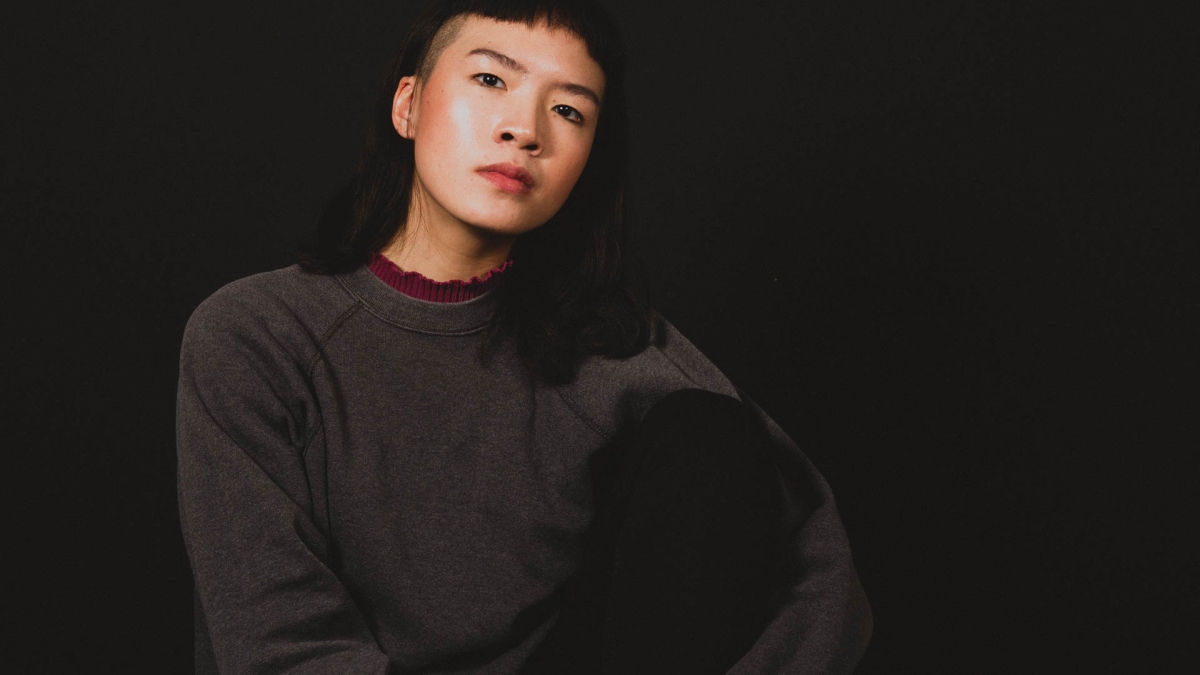Combining software development, creative arts helped ASU grad find groove

ASU grad Cece Nguyen.
Editor's note: This story is part of a series of profiles of notable spring 2020 graduates.
Cece Nguyen found something about pursuing a technology degree that excites her. Nguyen, a Surprise, Arizona, native was discouraged, due to her lack of coding skills and dislike for math, when she began studying her now completed degree in computer science in Arizona State University's Ira A. Fulton Schools of Engineering. Ngyuen found her groove when she made the decision to become proactive about her passion in finding the middle ground between software development and the creative arts.
She found the middle ground while working on projects that incorporated both web development and graphic design at ASU Enterprise Partners as a web design and content specialist. Nguyen also worked on a Normal Noise, a student magazine as a design editor for three years.
Nguyen was involved in the student organization Women in Computer Science that gave her an opportunity that she calls a “life-changing experience.” Nguyen had the opportunity to explore the Grace Hopper Celebration of Women in Computing, a conference hosting the largest gathering of women technologists, two years in a row. Nguyen was energized by the buzzing atmosphere and the excitement that the 20,000 women and allies had for innovative technology.
Nguyen also received support from the Nickless Family Charitable Foundation and the State Farm Scholars Program.The scholarships helped Nguyen attend college, without it she would've taken a completely different career path. Without the scholarships, Nguyen says she wouldn’t have had the same experience and opportunities while attending ASU.
Question: What was your “aha” moment, when you realized you wanted to study the field you majored in?
Answer: I was really discouraged when I first began studying computer science. I had no idea how to code, I barely even knew what an operating system was and I hated math. But there was something about working in technology that kept me motivated, I just wanted to prove to myself that I could make a career out of computer science if I worked hard enough. So I made a far-fetched goal to get a software development job after graduation. I finally reached that "aha" moment when I got an offer for my first summer internship during my sophomore year of college. I felt like working hard in school and doing my part-time job in a research lab was finally paying off and I had officially started the ball-rolling towards my goal.
Q: What’s something you learned while at ASU — in the classroom or otherwise — that surprised you or changed your perspective?
A: The most important lesson I learned at ASU was that "college is just a stepping stone." The transition from high school to college was a little rough on me. When I started out as a freshman at ASU, I put a lot of pressure on myself to succeed on every exam, homework assignment or project. I thought that it was the "end of the world" if I failed an exam or lost points on an assignment. Over time, I realized that although it was encouraged for students to do well in class, there was more to it than just taking courses. I learned that I could also pave my way to my career by getting involved with student organizations and working on side projects. This helped me learn to accept mistakes and lessened the pressure that I put on myself.
Q: Why did you choose ASU?
A: I chose ASU because it was affordable and ASU offered various majors that I was interested in.
Q: What’s the best piece of advice you’d give to those still in school?
A: Really focus on what you enjoy doing. Try to find what you're passionate about and become proactive with your passions.
Q: What was your favorite spot on campus, whether for studying, meeting friends or just thinking about life? (For online students: What was your favorite spot for power studying?)
A: I really like the College Avenue Commons, on the third or fifth floor there's this marble slab desk near big windows that face University Drive that has the best sunlight. I always need direct sunlight when studying.
Q: What are your plans after graduation?
A: After graduation I plan on working to fund my design work or travel. I really want to go out of the country (maybe the U.K. or Japan). I also want to figure out how to start my own company and build websites for other companies.
Q: If someone gave you $40 million to solve one problem on our planet, what would you tackle?
A: Oh boy this is such a hard one. With $40 million dollars, at the moment, I would give the $40 million dollars to small businesses being impacted by COVID-19. Our current government is not doing much to help small businesses out and continues to favor big corporations. I would also use the money to increase the housing trust fund to allow rental assistance to those who need it during this time.
Written by Shayla Cunico
More Science and technology

Turning up the light: Plants, semiconductors and fuel production
What can plants and semiconductors teach us about fuel production?ASU's Gary Moore hopes to find out.With the aim of learning how…

ASU technical innovation enables more reliable and less expensive electricity
Growing demand for electricity is pushing the energy sector to innovate faster and deploy more resources to keep the lights on…

What do a spacecraft, a skeleton and an asteroid have in common? This ASU professor
NASA’s Lucy spacecraft will probe an asteroid as it flys by it on Sunday — one with a connection to the mission name.The asteroid…

